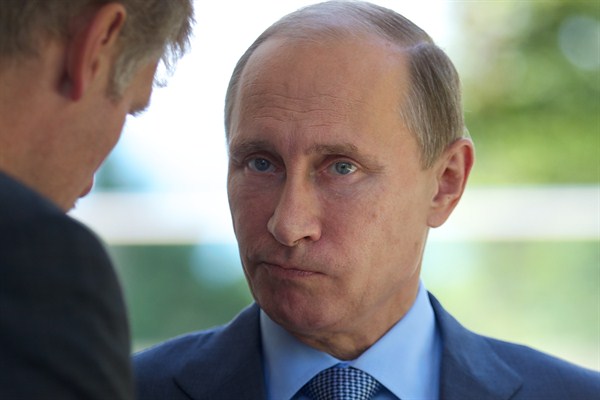Russian President Vladimir Putin has a busy schedule next week in the Belarusian capital of Minsk. On Aug. 26, along with the heads of Belarus and Kazakhstan, the other states that make up the Eurasian Customs Union, Putin will have a face-to-face trilateral summit with Ukraine’s President Petro Poroshenko and a European Union delegation headed by its foreign policy chief, Catherine Ashton, and Energy Commissioner Gunther Oettinger. The summit has an ambitious agenda on the table to try and defuse the Ukraine crisis: ending Russia’s not-so-covert support for rebels in eastern Ukraine; brokering a political settlement between the separatists and the government in Kiev; resolving the energy disputes—including payment of outstanding Ukrainian debts for past deliveries of Russian natural gas—that has led to a complete cessation of supply to Ukraine and imperiled energy deliveries to the rest of Europe; and clarifying how Ukraine’s new association agreement with the EU meshes with its previous commitments to the Eurasian Union.
No one but the most optimistic of observers would predict an immediate breakthrough in Belarus. But it is certainly the hope of German Chancellor Angela Merkel and others that the Minsk talks could lay the foundations for a sustainable roadmap for ending Europe’s worst security crisis since the outbreak of the Yugoslav wars of succession 20 years ago. Assuming that a major breakthrough in ending the Ukraine conflict does occur in Minsk, what next? Can the relationship between Russia and the West return to the status quo prior to the start of the events of Ukraine’s Maidan uprising?
One area that the proposed agenda for the Minsk talks seems to avoid—even though Poroshenko, in keeping with his inaugural address, will no doubt bring up—is the final status of Crimea. Ukraine still maintains the peninsula is an indivisible part of its territory, while Moscow now considers it to be part of the Russian Federation. Despite the imposition of Western sanctions to protest Russia’s invasion and subsequent annexation of Crimea, they are largely symbolic in nature. Their continuation, therefore, does not necessarily preclude a return to largely normal relations. Indeed, one can argue that Russia’s strategy since February has been to get other countries to delink the Crimean question from the larger Ukraine situation, to the point where accepting de facto Russian control over the peninsula is seen as an acceptable price to pay for avoiding a far larger conflagration.

